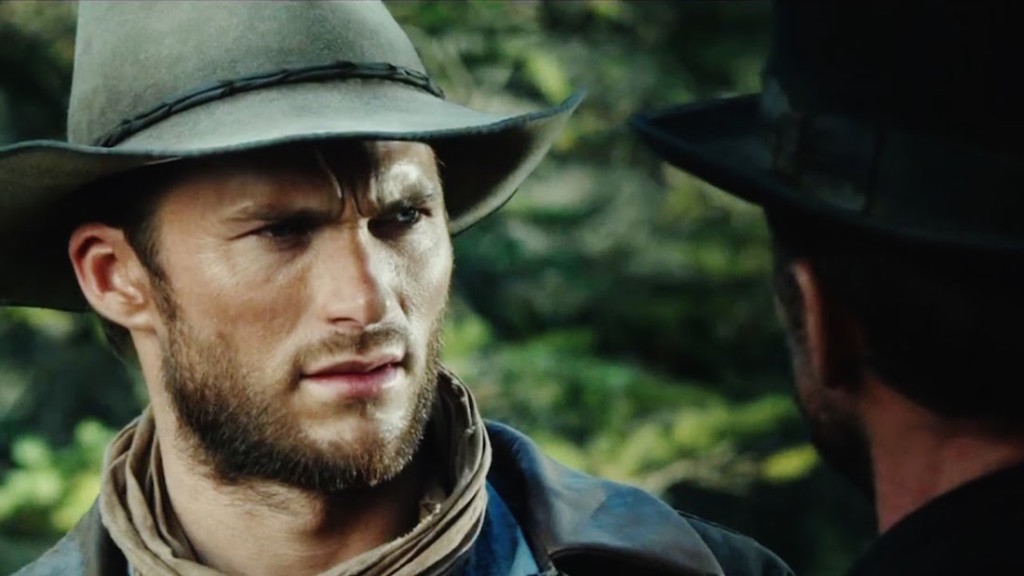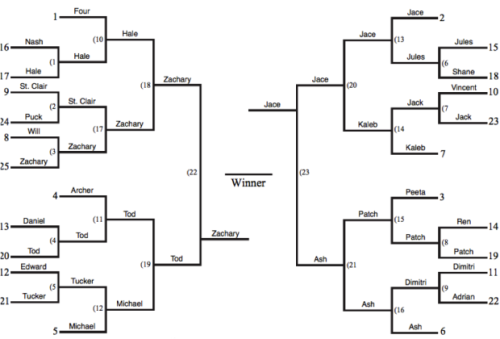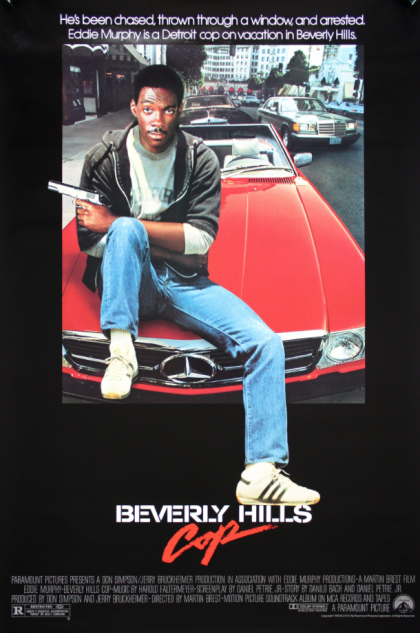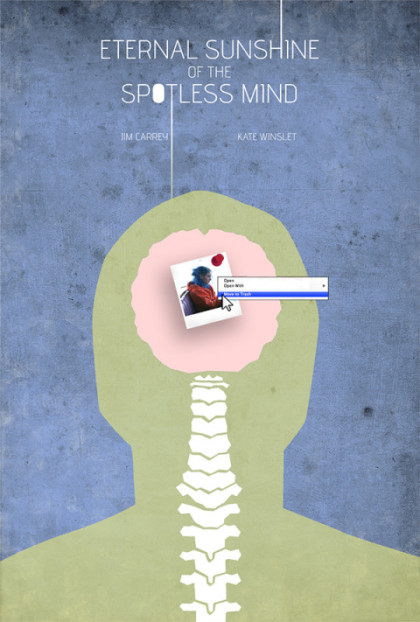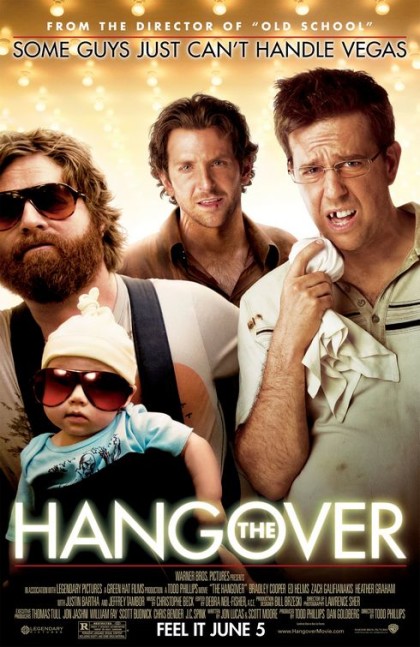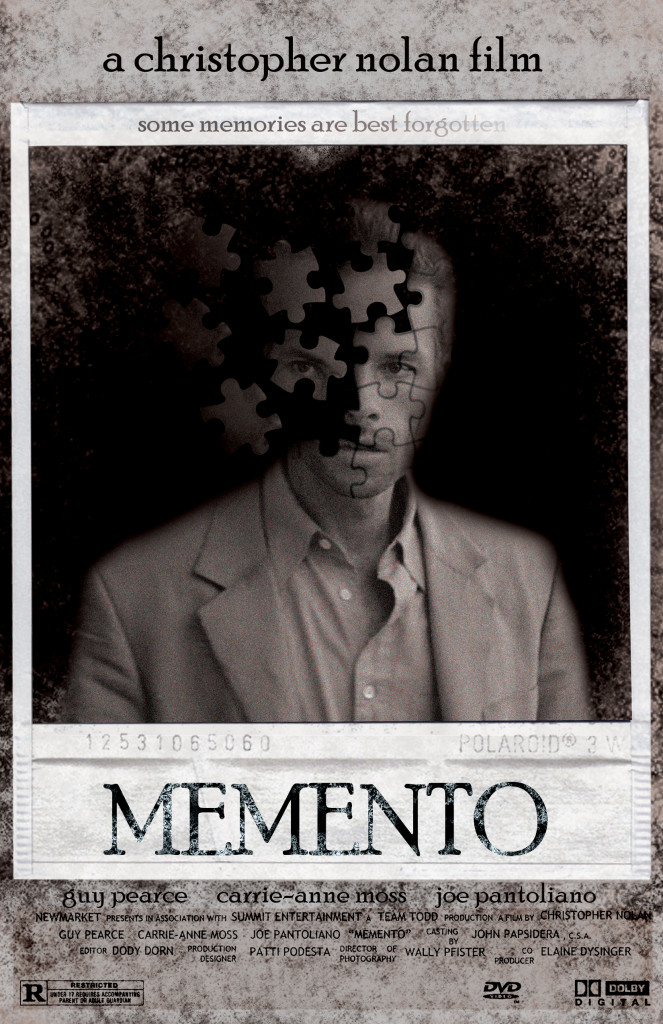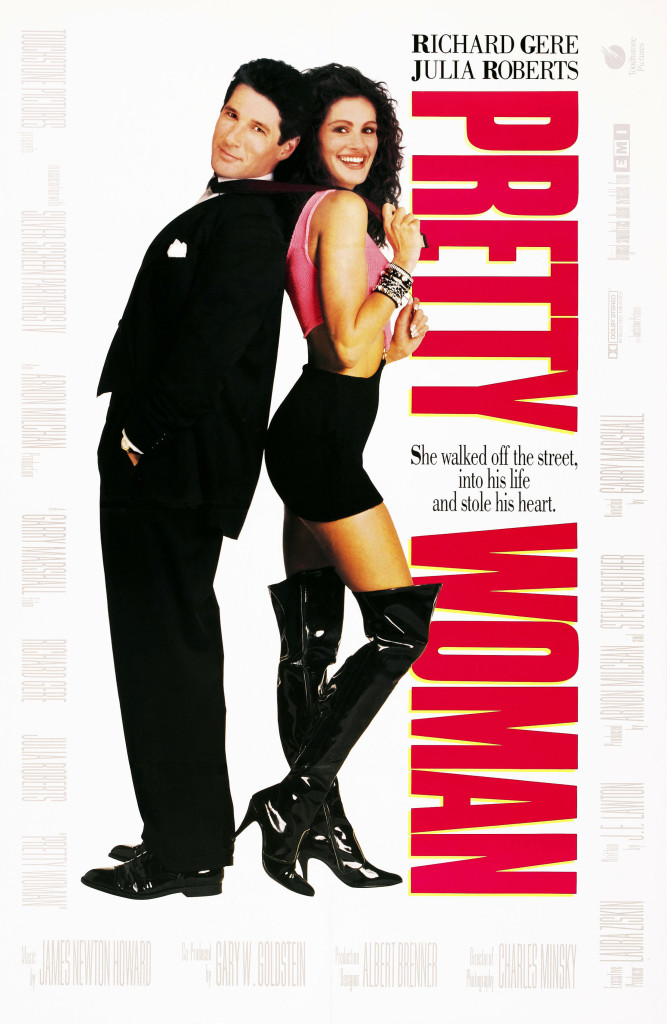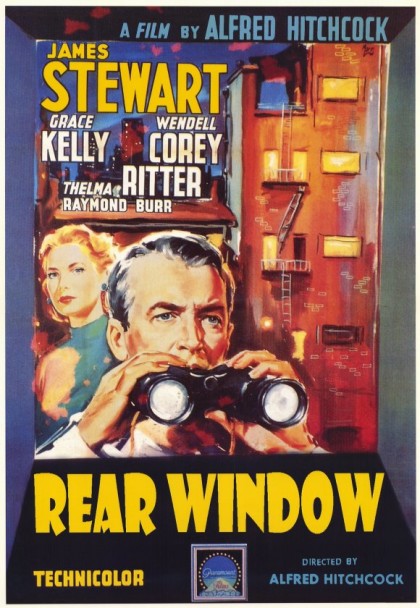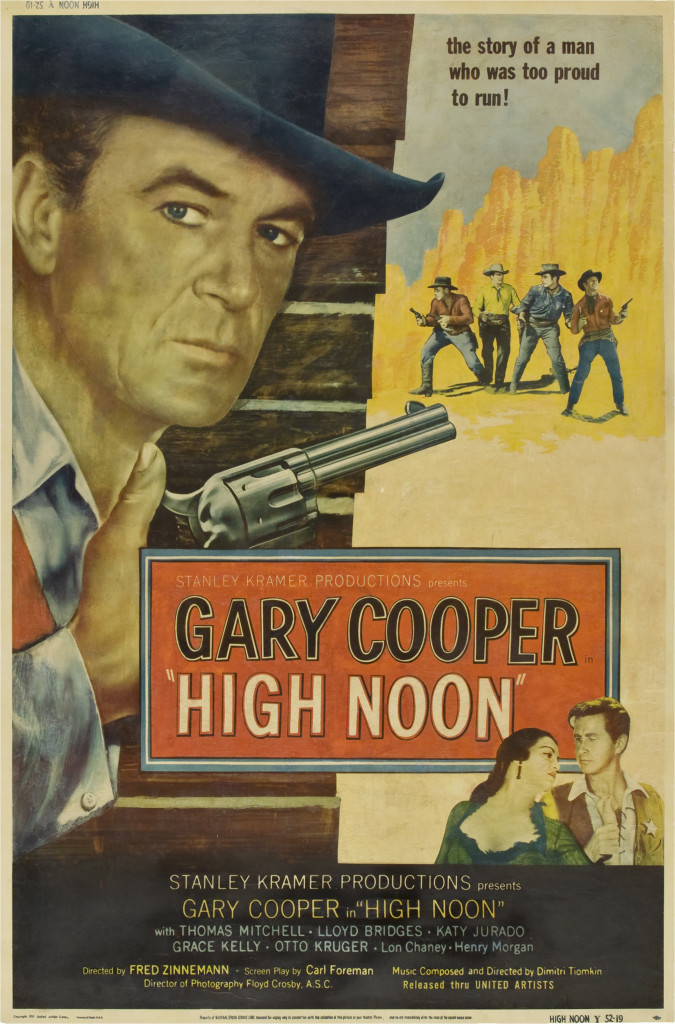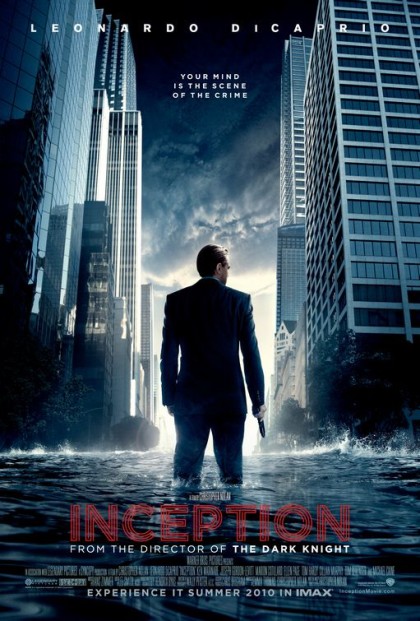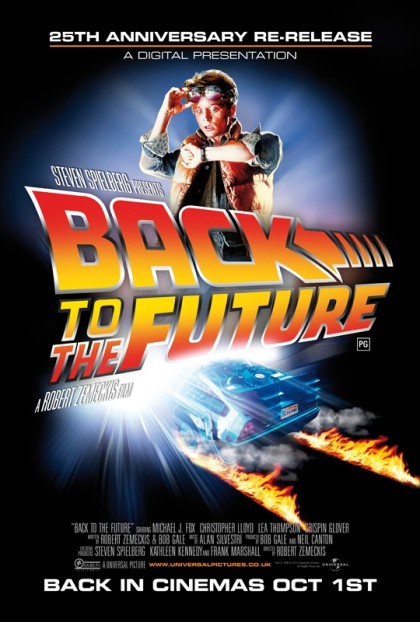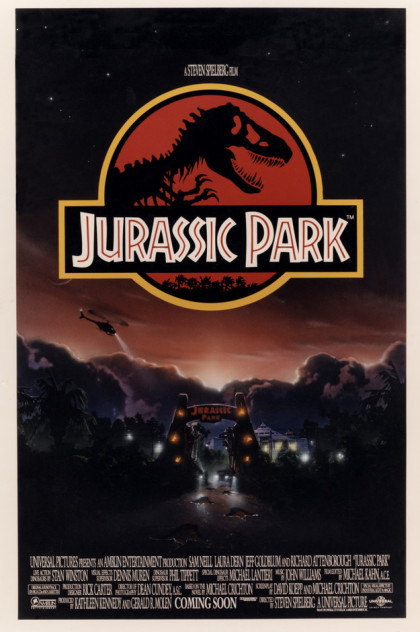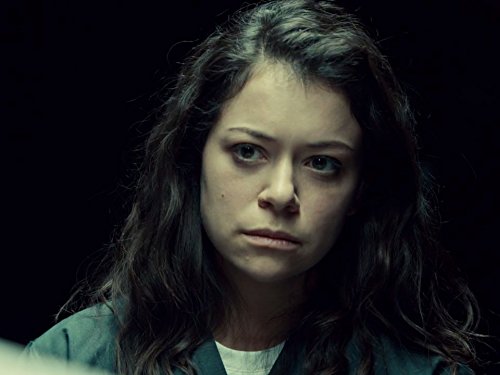Today’s writer makes one of the snazziest minor innovations to the screenwriting format I’ve seen since I started reading. This needs to become a mainstay in all scripts going forward!
Genre: Western/Thriller
Premise: When a poor but ambitious family man finds a barrel of gold, he attempts to follow his dreams without allowing his greed to drive him insane.
About: This script finished in the middle of the pack on last year’s Black List. These days, many Black List scripts come already optioned or purchased, or, at the very least, campaigned for. Let the Evil Go West is one of the few scripts that made the list bare naked. That implies that it was passed around due to the quality of the script alone – a rarity. Screenwriter Carlos Rios is an alumni of Universal’s Emerging Writer’s Fellowship, which is becoming a hotbed for finding strong emerging talent.
Writer: Carlos Rios
Details: 117 pages
One of the things you become keen on when you read a lot of scripts is knowing when you’re reading a writer and when you’re reading a pretender. The pretender is like the annoying guy at the party. He’s got nothing of substance going on so the only way to get your attention is to yell and scream and jump in the pool several times.
On the flip side, good writers are like Andy Warhol. They’re so confident in themselves that they’ll stand in one place, barely say a word, and let the party come to them.
Let The Evil Go West is one of the coolest written scripts of 2016. I LOVE this guy’s style. First off, he grounds that style in the format’s most dependable approach – SIMPLICITY. His writing is descriptive, but always stays on point, rarely eclipsing 3 lines.
On top of that, he uses a “continuous style.” A continuous style continues sentences and paragraphs even after a line break, sometimes bypassing capitalization in order to keep your eyes moving.
It’s a best of both worlds scenario. The only benefit of “wall of text” writing is that the sentences visually connect one after another so it feels like one continuous thought. The problem with walls of text is that they’re daunting and readers feel overwhelmed by them.
With a continuous writing style, we jump down to a new paragraph, and yet we’re still within the same thought, action, or description. However, we don’t have to deal with the cumbersome mass of text that usually accompanies that kind of connective writing.
Rios is a such a snazzy writer, he even innovated the format. More on that in a second. But first, let’s learn what this script is about.
30-something Abner Ellis is a lot like Daniel Plainview from There Will Be Blood. He’s an ambitious man who wants to take advantage of a country that’s still in its infancy. He’s got a beautiful wife, Elspeth, and a handsome little boy, Benjamin, who he plans to bring along on this journey.
The problem is, Abner is poor as shit. And back then, the only way to make money was to have money (actually, that hasn’t changed). Unfortunately, Abner’s been stuck in a string of low-paying jobs that eventually brings him to the Trans-Continental railroad.
While working for 2 dollars a day clearing land, Abner lucks out when he finds a barrel of gold in the nearby forest. Sure, there are four dead men laying by it, all of whom killed each other over the stash. But that’s the last thing on Abner’s mind. He’s finally in the game.
Abner moves his family up to Wyoming where he puts his grand plan into motion. Abner will build an entire town that the brand new railroad will run through. Elsbeth isn’t so sure, but Abner’s dogged determination to make something of his life eventually convinces her.
There’s one problem. Abner’s losing it. He’s so obsessed with his barrel of gold and so convinced that the next guy is around the corner, plotting to steal it, that he becomes more protective of it than he does his own family. And when real threats do surface, he’ll do anything to keep his gold. Even if it means killing those closest to him.
You’re dying to know what that innovation is, right? Okay, let’s do it.
One of the annoying things about reading is the inefficient syntax that delineates DAY from NIGHT at the end of a slugline. Most of the time, readers shoot past slugs to get to the important stuff, and often become confused as a result, needing to back up and check what the slug said to gain context. DAY and NIGHT are just one casualty of this glitch.
So Rios REVERSE BLOCKS his nighttime slugs. This way, we get an instantaneous VISUAL CUE that it’s night time. It’s genius! This was the first script I’ve read where I instantly knew whether it was night or day without having to read anything.
Now if someone could invent a visual slug that also delineated EXTERIOR and INTERIOR we could streamline screenwriting forever and push these janky math-like documents one step closer to a natural storytelling medium.
Well that’s great, Script Nerd Carson. But what about the script?
The script was great. There were so many hallmarks of good storytelling here.
Start with Abner. Scripts work better when the main character has a strong drive. Not only do we like people who are driven more than those who aren’t, but driven characters create a natural reason for us to keep reading. We want to see if the character is going to achieve what they’re driven to do.
Abner wants nothing more than to become great. So we want to see if he can do it.
Contrast that with a character who’s fine with where he is in life. Maybe something terrible happens to him and that’s what begins his story. You can still write a good script this way, but the story’s always going to be more powerful and the main character more likable when it’s HIM WANTING SOMETHING that drives the story as opposed to the story driving him.
But what really placed this script above so many others was the VARIETY IN STORYTELLING. What this means is that when you write a movie like Taken or Bourne, there’s only one beat being repeated throughout the movie – CHARGE THROUGH OBSTACLES TO CONQUER THE GOAL (“take down the CIA” in Bourne, “find my daughter” in Taken).
That can get tiring if every section is like that. Sometimes what intermediate writers will do to alleviate this is write a slow “sit-down-and-talk” scene. But all that does is momentarily alter the pacing. It doesn’t add VARIETY to the way the story is being told.
Variety in storytelling means creating entire sections that have a different purpose and feel than other sections. When you do this right it’s like magic because it keeps the reader off-balance and unable to tell where the story is going.
For example, early on we have a section where Abner goes off to make money on the railroad. It’s a goal-oriented sequence – get a job to support my family. However, when Abner brings the gold home, that section is entirely different. It has no goal. Instead, Rios builds a sense of fear surrounding the gold – that someone may have followed Abner and is planning to kill the family and take the gold.
So even though we’re sitting in one location for 15 pages, we have something that’s driving our interest – a potential threat from outside. And that fear permeates every scene. More importantly to my point, IT FEELS COMPLETELY DIFFERENT FROM THE RAILROAD SECTION.
So that’s something to keep in mind – that you’re not hitting the same story beat over and over again every sequence. Granted, it’s easier to do this when the timeline is extended, like it is here, but crafty writers can achieve this in time-crunched narratives as well.
The only reservation I have about the script is that the ending gets really dark. The whole movie was such a rush and then we’re hit with this hard-to-take finale. I guess it was inevitable but still tough to swallow. However, if you liked There Will Be Blood and The Shining, you’re going to go fucking go apeshit over this.
What a script!
[ ] What the hell did I just read?
[ ] wasn’t for me
[ ] worth the read
[x] impressive
[ ] genius
What I learned: There’s no need to draw attention to jumps in time (writing down: “6 months later”). Remember that time jumps can kill plot momentum. We’re zipping along and then we see: “1 Year Later.” We feel the wind sucked out of the plot. We’ve got to start building momentum all over again. For that reason, only notate time jumps if it’s necessary for clarity. Otherwise, do what Rios does here and use visual cues to show we’ve jumped forward. For example, we’re on an empty strip of land that Abner’s just purchased for his town, than we cut to an almost completed train station and we just seamlessly keep moving through the story.
THE WINNER HAS BEEN ANNOUNCED BELOW
From 500 scripts down to the final 4! Last week, #1 Seed, “The Savage,” powered its way into the final. Who will he be taking on? That’s up to you! As this is the only screenplay competition where YOU, the audience, vote.
Here’s how voting works. Read as much from each script as you can then vote in the comments which script you think deserves to advance to the FINALS. Please explain why you voted for the script. It doesn’t have to be elaborate. We just need to get a sense that you read it.
I’ll let the writers discuss any changes in the drafts from previous rounds in the comments section. Voting closes at 10pm Pacific Time Sunday evening. Good luck!
#3 SEED
Title: The Bait
Genre: Romantic Comedy
Logline: A jaded woman, employed to test men for fidelity by their concerned fiancés, finds her world turned upside down when she falls for her latest target.
Writer: Billie Bates
VS.
WILD-CARD
Title: What Remains of Troy (formerly “Odysseus and His Boy”)
Genre: Period
Logline: With only one night to act, two rival soldiers must sneak behind enemy lines to complete a last-ditch suicide mission that will finally put an end to a decade-long conflict.
Writer: Steffan DelPiano
WINNER OF SEMIFINAL WEEEK 2: The Bait by Billie Bates! Congrats to Steffan, who fought his ass off to get here. I’m just bummed that right when he found a 1000% better title, he lost. But fear not, I’m weighing whether to review all the semi-final scripts on the site. So maybe this won’t be the last we’ll see of Troy. And wonderful job, Billie! I know, personally, how hard you’ve worked at getting better at this pesky craft. To see you barrel your way into the finals is so satisfying. And there we have it, folks. Next weekend. Two scripts that couldn’t be more different squaring off in the SCRIPTSHADOW TOURNAMENT FINAL! THE SAVAGE VS. THE BAIT. You best know that I’ll see you all then!!!
P.S. Start getting those short scripts ready people!
Yes, it is happening.
I am going to list the ten greatest movie concepts of all time. And I’m doing it to remind you that concept is still king in this town. If you come up with a great concept, you possess power. There are very few great concepts circulating. That’s because whenever they show up, they get snatched up.
Here are some successful movies from the past year…
Rogue One
La La Land
Deadpool
Doctor Strange
Jason Bourne
Sully
Arrival
The Accountant
Hacksaw Ridge
Most people who saw these movies would say they were good. But conceptually, they’re nothing special. Rogue One is about stealing some plans, so a basic heist story. Deadpool is an irreverent look at superheroes, which is cool, but shines because of its hero, not its story. Arrival’s a cool little sci-fi idea. But nobody’s saying, “I want to see a movie about alien language!”
The closest we have to a great concept is Hacksaw Ridge, and that’s because it includes irony (one of the best ways to supercharge a concept). A soldier who refuses to carry a gun becomes the biggest hero in one of the most important battles of World War 2.
You see, concept is not the same as an idea. An idea is like a concept fragment. It’s a cool starting point, but it doesn’t have enough meat to be a full-on concept. An example would be Transformers. Vehicles that transform into robots is a cool idea one can easily imagine as a movie. But there’s no plot in “vehicles that transform into robots.”
I hate to burst your bubble, Ghostbusters fans. But that too is just an idea. Men who capture ghosts. Great idea. But not a full concept. That DOES NOT MEAN it wasn’t a great movie. They figured out a plot that worked and injected it with some of the most memorable characters ever. But a good concept takes an idea and infuses it into its plot in a clever way. It’s the entire movie as opposed to just the spark that ignited it.
Note that you don’t need a great concept to write a great movie. Star Wars isn’t a great concept by any means. You’d need five minutes just to explain the backstory necessary to pitch the idea. But it’s still one of the greatest movies ever. However, when you start with a great concept, you start with a much better chance of writing a great movie. That’s because great concepts lay the entire movie out before your eyes. Whenever you hear writers say, “The movie just wrote itself,” it’s usually because they had a full concept as opposed to just an idea.
So here are the ten greatest movie concepts of all time. I’m hoping they will inspire you to come up with your own great concept.
Beverly Hills Cop – A rough and reckless Detroit cop invades the prim and proper town of Beverly Hills to investigate the murder of his good friend.
The best concepts tend to have some form of contrast or irony. Beverly Hills Cop’s concept is the embodiment of both. What better cop to place in the rule-obsessed universe of Beverly Hills than one from the most ruleless city in the world? There’s a reason this movie cemented Eddie Murphy as the planet’s biggest star. It was the concept, baby!
Eternal Sunshine of the Spotless Mind – In order to get over his ex-girlfriend, a man hires a revolutionary new company that can erase targeted memories. But during the erasing process, he changes his mind, and both he and his ex must escape the memory erasing process in order to stay together.
The thing about Charlie Kaufman is that he gets everything out of his concepts. Most people would stop at the surface here. We watch our hero get his memory erased, see his old girlfriend, not know who she is, etc. But Kaufman takes it to the next level, where we’re inside the memories as they’re being erased and our two characters are trying to hide from them so they can’t be erased along with them. It’s probably the most brilliant way to explore a relationship that’s ever been put on film. Conceptual euphoria!
The Hangover – Three friends celebrating a bachelor party in Vegas, wake up to find the groom missing and have no memory of what happened the night before. Using clues from the previous night’s debauchery, they must travel around Vegas to find their friend and get him back to his wedding on time.
Do concepts get better than this one? I don’t know. You’re coming at an age-old comedy premise (bachelor parties) in a completely unexpected way (don’t show the bachelor party itself, but focus on the aftermath). The stakes (the missing groom) and urgency (the wedding back in LA) are totally organic to the concept and therefore don’t feel written. This is the definition of a movie that writes itself.
Memento – A man with a unique form of amnesia that only allows him to remember 8 minutes into the past, must find out who killed his wife. Using tattoos to never forget the clues, we observe the investigation starting at the end of the movie and finishing at the beginning.
This idea of tattooing clues to your wife’s murder onto your body because you have amnesia is so freaking cool, I still get chills thinking about it. To go one step further and tell the story backwards put this concept over the top, and cements this as Nolan’s best screenplay ever.
Pretty Woman – A successful businessman who’s in Los Angeles for a week to close a deal hires a local hooker to keep him company. But as the week goes on, it becomes less and less clear whether their relationship is business or personal.
Some of you might question this choice, but Pretty Woman was one of the most famous specs ever written and was loved by almost everyone who read it. That was because of its strong concept that laid out the perfect conflict for a relationship-centered movie. Is this a real relationship or is it a transaction? That undercurrent plays throughout and, famously, climaxes in the opposite direction in the original spec, when our hero kicks the hooker out at the end and reminds her that she is and will always be a prostitute.
Rear Window – Confined to a wheelchair in his New York apartment, a bored photographer spends his nights watching his neighbors in the windows across the way. When he thinks he witnesses one of them murder someone, he must convince his skeptical friends that what he saw was real.
If you want to study concept, Hitchcock is a great place to start. Since almost all of his movies are low budget, he has to rely on clever concepts to keep the audience interested. The man stuck in a room who thinks he’s seen something terrible concept was so good that it’s spawned numerous copies over the years. It is the prototype for coming up with a fixed location high concept movie.
High Noon – Before the sheriff of a small town retires to raise a family with his wife, he finds out that a dangerous criminal he put in prison will be arriving on the noon train to exact revenge on him. The sheriff will have just a few hours to recruit a posse big enough to take on the outlaw and his blood-hungry gang.
Good concepts tend to have organic ticking time bombs built right into the premise. And this concept has one of the best. There’s something about being trapped in this tiny town with a nasty criminal just a few hours away, and everywhere you go for help, they turn their backs on you, that makes this one of the most tense and suspenseful concepts ever.
Inception – Utilizing new technology that allows us to enter the subconscious, a group of dream extractors are commissioned by a businessman to enter his competitor’s mind and convince him to dissolve his company.
This was the most difficult choice on this list because I don’t think the plot is as strong as the idea. So is this really a great concept? It’s debatable. However, the idea of placing heists inside the dream world, and then creating multiple layers of dreams, each of which distort time even further, leaves for some hella-trippy sequences that make this concept hard to forget.
Back to the Future – A high school student is accidentally sent back in time 30 years where his teenage mother falls in love with him. The student must now convince his mom to fall out of love with him and in love with his hopelessly geeky father before it’s time for him to jump back to the future, or be erased from existence.
This was another close call because it’s a concept that needs a bit more plot setup to get to the hook. But that hook is so glorious (your own mother falls in love with you and you have to reverse that in order to secure your existence) that it makes it Top 10 worthy.
Jurassic Park – After scientists learn how to clone dinosaurs, they create the world’s first dinosaur amusement park. But when the dinosaurs prove less than eager to be treated as entertainment, the park’s first attendees find themselves fighting for their lives.
This concept works in a very unique way, in that we know where it’s going before we even finish reading it. And that’s when you know you have a movie. I mean who honestly believes you can contain dinosaurs? That they’re going to cooperate? Of course they’re going to rebel. And of course they’re going to take it out on our poor group of heroes. Which is why people flocked to the theaters to see this.
Before I leave, let me go over a few movies that I didn’t include. Indiana Jones is more of a great character than a great concept, although an argument can be made to put Raiders on the list. Toy Story is more of a great idea (what do toys do when kids aren’t around?) than a great concept. Jaws is another good idea (a really big shark terrorizes a local community) but not complex enough to be a killer concept. Tootsie is just “guy dresses up in drag” to me. I don’t find it to be very clever or complex.
And then there are many great movies that shine because they’re beautifully intricate, not because they have great concepts. Movies like The Shawshank Redemption, Chinatown, The Godfather, Taxi Driver, Casablanca, Pulp Fiction, The Dark Knight.
But that’s sort of the point. Those movies needed to be crafted perfectly from the ground up. When you have a great concept, you’ve already laid the foundation for a great script. It writes the movie for you. To that end, there are still many concepts that could’ve made this list. Seven. The Usual Suspects. One Flew Over the Cuckoo’s Nest. Liar Liar. The Terminator. I realize there’s some subjectivity here.
What about you guys? What concepts would you add to the list?
Genre: Drama
Premise: Spanning thousands of years, we follow three separate storylines that deal with the universal questions of love, death, and time.
About: This script finished in the top 10 of last year’s Black List. The writer, Colby Day, is a brand new writer on the scene. He wrote one extremely low budget movie in 2011, but for all intents and purposes, this is his breakthrough moment.
Writer: Colby Day
Details: 97 pages
One cannot think of the “spanning time sci-fi” genre without mentioning Cloud Atlas. That film is arguably the most beautiful science fiction film ever made. Which shows you just how bad it must have been that nobody ever speaks of it.
The problem with spanning time movies is that the writer seems more excited by the fact that he can cut between 12,000 B.C. and 2400 A.D, than actually creating a compelling story! Seriously. Everyone wants to copy that bone thrown up in the air, cut to space 2001 shot because – let’s face it – IT’S FUCKING COOL!
But cool cuts between vast gaps in time make up maybe 1/10000 of your screenplay. You still have to tell an entertaining story. Did today’s script do so? Let’s find out.
We start out in 45,000 B.C. That’s where we meet our Neanderthal family of Thorn, his wife Hera, and their daughter, Lark. For this tight-knit group, the goal is simple: SURVIVE. It isn’t just the harsh conditions they live in that threaten them. It’s that they have no knowledge of medicine, no knowledge of anything. If someone gets sick, it’s very likely they’ll die.
Cut to present day where we meet Claire, a professor who studies history, specifically the Neanderthal people. Claire’s a bit of a bitch, and when she’s not carbon-testing bones, she’s fending off resident geek and fellow professor, Greg. Claire detests Greg but since he’s the only guy giving her any attention, she keeps him around.
Cut to 2217, where we meet Coakley, a young woman genetically altered to live for hundreds of years. Coakley is on a spaceship headed to a planet in another solar system which she plans to populate with a bunch of frozen babies she’s hauling downstairs. Her only company is Rosco, the female A.I. on the ship responsible for keeping Coakley alive. When the ship’s hydrogen generator goes down, Coakley has to figure out a way to fix it, or die.
The script cuts back and forth between these three storylines, and then, as we move into the final stages of the story, we push further and further forward in time, until we’re spanning entire generations. It is the most noble attempt at covering the plight of mankind in under 100 pages that I’ve ever seen.
Let’s get back to that question. Is In the Blink of an Eye a good story or is it time masturbation? The only way we can answer that question is to look into the individual storylines and see what kind of story engines are driving them.
We’ll start with the Neanderthals. Now as I’ve mentioned many times in the past, the two most powerful story engines are a specific goal or a mystery. Those two engines drive 95% of the best movies out there.
There’s a goal in the Neanderthal section in “Blink” but it’s a general one: To survive. General goals can work, but the characters have to pick up the slack that the plot’s not offering. And of the three storylines, the Neanderthals are the most sympathetic. We see them lose two babies and a mother. We see them battle disease and the elements. So I was invested in them.
The problem is the problem that always happens when you have a non-specific goal. The ending is weak. If you’re not pushing towards something specific, it’s hard to know where to end your story. And here, we just watch Neanderthals give birth to more Neanderthals who give birth to more Neanderthals, and that’s sort of it. I wasn’t sure what to make of that.
Let’s talk about the present day then. Claire doesn’t have a specific goal. Nor is there a mystery in place. However, as we’ve established, if you don’t have a story engine, you can still save your story with a great character. The problem is, Claire is a total bitch. She’s rude to this really nice guy who really likes her and only wants to do good things for her. So this was a tough storyline to get invested in. I kept wanting them to connect Claire’s research to the Neanderthal storyline in a concrete way, but it was all very vague.
Of the three storylines, Coakley’s is the only one with a concrete goal: To colonize a new planet. The benefit of having a goal in your story is that you can place obstacles in front of that goal, and because you have obstacles, you now have drama.
With Coakley, we get this entire sequence where she needs to figure out why the ship isn’t producing hydrogen or she’ll die. Because of that, she has to make one of the most difficult decisions in the script – she has to reboot Rosco. Rosco points out, “But doesn’t that mean you’ll be killing me?” The Rosco that comes back will not be the same Rosco she’s been with this whole time. It’s a torturous decision.
Compelling dramatic moments like this can be traced back to the power of the goal. Without the goal, we couldn’t create the obstacle. And without the obstacle, we couldn’t create a solution that only included the difficult decision of killing your only friend.
It seems to me that Colby Day was less interested in writing a well-conceived plot, and more into tackling the thematic nuances of time and death and the universe. And I totally respect that. I mean, that’s basically what 2001 did.
But whenever somebody does this, I can’t help but wonder whether they did it because it’s easier. It’s a million times easier not to connect things. It’s so much harder to dig in, do the hard work, and figure out how to directly connect storylines from 200 years apart, from 45,000 years apart. So a lot of writers will just say, fuck it. I’ll go the thematic route and position my script as a thinking-man’s piece that leaves its answers up to the viewer.
Takes me much less time. If it works, I look like a genius. Win-win.
With that said, I’ve been saying I want more original screenplays and this is definitely that. Thumbs up to Day for not giving us another biopic. If I had to read one more logline that started with, “The true story of an underdog stock trader in the midst of a midlife crisis who was the first man in World War 2 to meet the Beatles while Stephen King wrote his first book…” I was going to blow my brains out.
In the Blink of an Eye was just too “floaty” for me. I wanted something concrete. Something I could put my hands on. It’s not a bad script. It just wasn’t my thing.
[ ] What the hell did I just read?
[x] wasn’t for me
[ ] worth the read
[ ] impressive
[ ] genius
What I learned: When you’re jumping back and forth between timelines, strong narratives within each of those timelines help. Without concrete story engines that push your characters forward with gusto, we’re always getting dropped back into a laid-back atmosphere, one that takes us awhile to remember what’s going on and why it’s important. There’s no wrong way to write a multi-timeline screenplay, but my experience reading these scripts has taught me that without strong engines powering the individual stories, you’re making things very hard on yourself.
Genre: Period/Spy
Premise: In 1976, during a critical point in the Cold War, a Russian female spy is assigned to get close to an American spy who may have information on one of Russia’s biggest moles.
About: Red Sparrow is a best selling novel that won the Edgar Award for best first novel, given to author Jason Matthews. The book has since been adapted by Eric Warren Singer, who scripted the very good American Hustle. I’m a little confused over what I’m reading today, since the book deals with a modern day spy story, and the script sets us back in the heart of the Cold War. Either way, they’re planning on this being a franchise, with at least 3 films. It will star Jennifer Lawrence and Joel Edgerton.
Writer: Eric Warren Singer (based on the novel by Jason Matthews)
Details: 132 pages – undated
I’m curious what they’re going to do here. Because one of my first criticisms after reading the script was, “You’re really going to set a major Hollywood picture in Russia in 1976?” Like, are you purposefully trying to make it so no one shows up?
Then I heard the novel was set in the present day, which at least made more sense from a marketing standpoint. Here’s the problem with that, though. Today’s relations between the U.S. and Russia do not have the same dramatic effect as the “at any moment the world could blow up” period of the Cold War. So there are pros and cons to going either way. Maybe they’ve since come back to the modern-day storyline after this Trump-Putin stuff. I don’t know.
So we shouldn’t take this script to be representative of the final product. Still, there’s a lot to learn from it, most notably how a writer should know when and when not to cut plot. So let’s dive in.
It’s 1976 and Dominique “Dom” Egorov is a honeytrap, a Russian spy who specializes in making marks fall in love with her so she can steal their information and pass it back to the motherland. We meet Dom as one of her lovers realizes she’s a spy and what that means for his career, and therefore slits his wrists right there in front of her. Dom, who’s spent every day of the last six weeks with this man, calmly walks out the door, not even the slightest hint of emotion on her face.
Cut to Nate Nash, a reckless CIA agent stationed in Russia, whose key contact, Major General Vladimir “Korch” Korchnol, has provided the U.S. with amazing intel for over 15 years. But after Nate gets fingered by the KGB, the US has no choice but to send him on some meaningless mission in Greece.
In the meantime, the Russians now know that one of them has been feeding information to Nash. They just don’t know who yet. This is why the Russians send their best honeytrap, Dom, to Greece, to see if she can get Nash to give up some clues as to who the mole might be.
After a lot of surveillance, Dom makes her move, and of course Nash instantly falls for her. She’s a honeytrap for goodness sakes! The problem is, Dom falls for him too! We then cut back and forth between their romance and the Russian team back in Moscow getting closer and closer to discovering that Korch is the mole. Will Nash find out he’s being honeytrapped in time to save his buddy? Or will poor Korch become Korch meat?
I think they have a good movie in Red Sparrow. But they haven’t found it yet in this script. Here’s the thing you want to keep in mind whenever you’re writing a spy romance. Are you ready?
THEY’RE ALL THE FUCKING SAME!!!!!!
It’s a good setup. Don’t get me wrong. You have two people who are in love with each other. But either one or both parties don’t know the other is a spy. And that dramatic irony adds a level of excitement to the romance that a basic romance just can’t compete with. So that’s great.
But we’ve seeeeeeen it already. We’ve seen it so many damn times. So what’s the difference with your spy romance? What makes yours a “must see movie?”
The thing with Red Sparrow is they have the answer. And yet they ignored it. There’s a throwaway line late in the script where they’re telling Nash that Dom is a honeypot, and how she’s tricked him. And he’s like, “No, she loves me. I saw it in her eyes.” And the guy’s like, “Do you know what kind of schooling they put these girls through? Their job is to make it seem like they love you.”
THAT. MY FRIENDS. IS YOUR MOVIE.
The implication here is that they make these spies irresistible, from how they interact with you, to giving you the most amazing sexual experiences you’ve ever had x1000. We’ve never seen these schools in this kind of movie before. We needed to see that. Teaching this girl, at a young age, things as complicated as every sexual move to make a man obsessed with you.
And not just because sex sells but so we understand who this character is when she meets Nash. We’ve seen her grow up in this horrid lifeless awful school designed to turn her into a sexual object, designed to turn her into someone with zero feelings, to never get attached to the mark.
Instead, we get a throwaway line and a halfway decent story about a best friend whose double-spy status might get revealed.
I’m sorry but I’ve seen that movie before. Dozens of times. Not enough writers ask themselves that question: WHAT AM I GOING TO DO THAT’S DIFFERENT?
I’m not saying you have to come up with the most amazing perfect story answer. But just by ASKING the question, you up the chances significantly that you’re going to write something that feels different from what others have written in the past.
Another thing I couldn’t stop thinking during this script was “faster, faster, faster.” The story needed to move faster. After the opening scene, we don’t see Dom again until page 28. And after that, we don’t see Dom and Nash meet til the midpoint. In my head, I’m thinking, “Come on, we can hit those plot points so much sooner.”
But then I remembered that sometimes, it isn’t that the plot points aren’t being hit fast enough. It’s that the story in between the plot points isn’t interesting enough. That can fuck with you when you’re writing, especially when you’re starting out. Because you need to figure out which is the real problem. Do I need to write faster? Or do I need to write better?
And the more I thought about it, the more I realized it wasn’t the slow-to-come plot points. It was the plot itself. Once you recognize that, you can start pinpointing what’s making the story weak.
Once I switched over from “faster” to “better,” I noticed where the script went wrong. I mean the stakes alone are a huge issue. The stakes here are, basically, Korch not getting caught as a double spy. That’s a nice subplot. But it shouldn’t be the main set of stakes driving a movie set in the Cold War involving the U.S. and Russia. The threat of nuclear fucking war needs to be part of the stakes. I liked Korch. But I don’t think Korch is as big of a deal as New York getting blown up.
Now, obviously, this is not a final draft. So I’m not criticizing this project definitively. In fact, I’m betting they’ve had these exact same conversations. But I think it’s a good screenwriting lesson to keep in mind for sure.
[ ] What the hell did I just read?
[x] wasn’t for me
[ ] worth the read
[ ] impressive
[ ] genius
What I learned: Is your script moving along fast enough? And if it isn’t, is it because your major plot points are taking too long to arrive or because your story itself needs to be more compelling?

